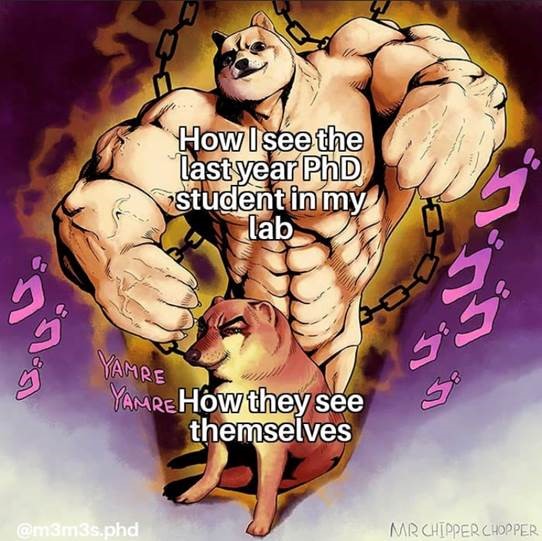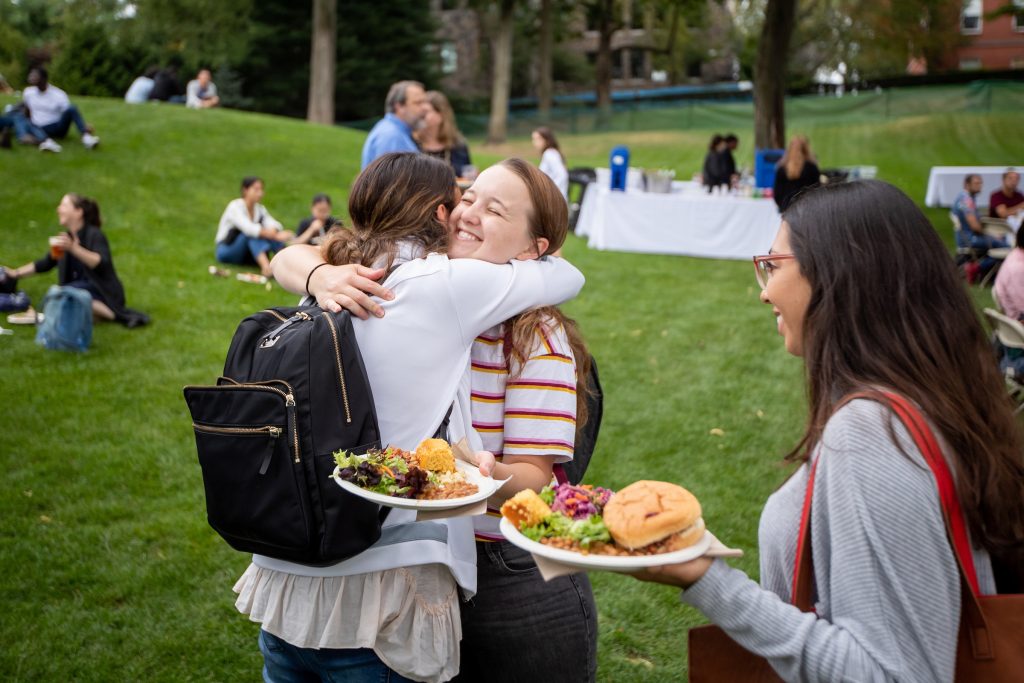Written by Ebru Ece Gulsan, Ph.D. student in Chemical Engineering
We have all heard horror stories about grad school. We knew advancing our research and coursework, while balancing our finances and life outside of grad school, would be challenging. But knowing and experiencing something is different. Maybe as an undergraduate, we were one of those students who seldom struggled with the assignments. Maybe our friends and family used to point at us as the overachiever of the crew. Maybe we played sports, planned events for social clubs, volunteered at animal shelters, or got straight A’s and graduated in Dean’s List of Honor. We know we were more than capable of overcoming the struggles of grad school. But, maybe we thought it would be just like a breeze, that we thought we would be an exception. But are we really an exception?

Maybe you come here as an overachiever and the very first experiment you designed fails. Graduate level classes are actually really hard, and now you have to assist undergraduates about a class that you took 3 years ago and barely remember the basics. Then maybe your second and third experiments fail, and your self-confidence falls through the floor. You realize you are not giggling while incubating your bacteria and start questioning if you are actually happy or meant to be in grad school.
So here is the deal:
It is OK to experience failure in grad school. You are literally creating knowledge and performing cutting edge research – and that science is built by figuring out what doesn’t work as much as by figuring out what does.
It is OK that your experiments take more time than you thought they would. There will always be bottlenecks and inevitable setbacks on your timeline and sometimes they are not predictable.
It is OK that some weeks you will have to work day and night, but some weeks there will not be much to do. You will not be burnt out every single day. Having ups and downs is completely normal. Steady state assumption only works for solving hypothetical chemical engineering problems.
It is OK that your initial hypothesis on your thesis proposal was wrong. It would be a miracle if you guessed it right on your first time. I know it can be frustrating to come up with a new idea, but do not forget about what you have learned along the way. You deep dove in the literature and read a tremendous amount of research articles, did numerous experiments, defended your ideas in rigorous discussions. You know much more than you used to – even though you are not aware of it yet! You will be surprised how natural it will be to come up with a new hypothesis.
It is OK that you mixed up the bottles when you were preparing your solutions. So what? You can make them again! I guarantee you that even the third year PhD student in your lab, who you think is very confident in their work, once made the same mistake.
Everybody fails.
Grad school is a place where pretty much everybody is brilliant. Your group members are brilliant, your faculty is brilliant, your classmates are brilliant, your advisor is brilliant (probably the most brilliant person you have ever met in your life). Everybody has certain personality traits that brought them to grad school: time management skills, dedication, organization; the very same skills that brought YOU to the grad school! So please remind yourself that there is no smooth way to achieve your goals. Even the people you consider successful scientists have failed many times on their way to where they are standing right now.
Luckily, Tufts offers numerous resources we need to balance our countless responsibilities as graduate students. I tend to see exercising and fitness as a “binding agent” for all my other tasks; moving my body always gets me through my daily responsibilities smoothly. The Tisch Fitness Center provides a safe and healthy environment for those who would like to use the exercise studios and gym equipment upon reservation. Counseling and Mental Health Service (CHMS) understands the unique challenges of being a graduate student and offers short- and long- term counseling, group meetings, and telehealth services. The International Center always has an annual calendar filled with events for Graduate Students and all students, even in the middle of a pandemic, to assist us in our journey and increase the knowledge of immigration laws and international student rights.

Last but not least, it is crucial to build a supportive community especially with the folks who go through similar experiences with you. Along with the welcoming environment of Tufts University, the Graduate Student Council (GSC) is always there as a representative body and a priceless catalyst for us to meet other graduate students and engage in valuable conversations with our peers.
My advisor once said if he already knew everything he had learned throughout his PhD before he started, his PhD would have only taken 6 months. There is a reason why PhD takes 5+ years. Just because you struggle with this aspect of your work, that does not reflect on you as a person. Making mistakes does not make you a bad scientist; it makes you a human. We are here to learn; this is a part of the process and should not be locked out of the experience. Failure is natural. It is organic. It is expected. The only superpower we need to have is hard work. We just need to learn how to pick ourselves up and move along.
